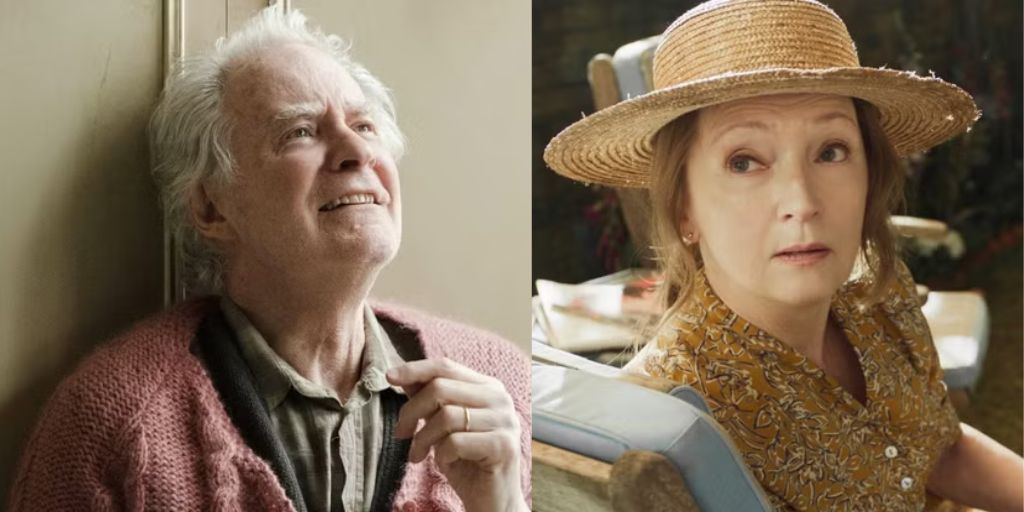Apple TV+ continues to prove itself as a streaming platform that takes significant risks and tells attractive stories. One of its latest offerings, the psychological thriller limited series Disclaimer, is a striking adaptation of Renée Knight’s 2015 novel.
This series is a testament to the network’s commitment to high-quality storytelling, as it draws viewers into a web of intrigue, emotion, and moral complexity. Directed by Oscar winner Alfonso Cuarón, Disclaimer unfolds over seven episodes, delivering a narrative that is both gripping and profound.
By the end of the series, viewers are likely to find themselves questioning how they arrived at such an emotionally charged state, making it clear that the past can indeed come back to haunt those who least expect it.
Alfonso Cuarón Crafts a Complex World in Disclaimer
The most striking aspect of Cuarón’s series, aside from its stunning visuals, is the masterful way he tells the story. Cuarón weaves together three well-crafted storylines—two set in the present and one in the past—with a level of precision that sharpens the tension and intrigue with each episode.
The series begins with Cate Blanchett’s character, Catherine Ravenscroft, at the pinnacle of her journalism career. She is being honored at a lavish ceremony, celebrating her success in uncovering hidden truths and exposing the exploitative behaviors of powerful individuals.
This irony, of a woman dedicated to revealing the truth being surrounded by glamour and accolades, serves as a recurring theme throughout the seven episodes of Disclaimer.
Catherine is not alone on this journey; she is accompanied by her supportive husband, Robert, played by Sacha Baron Cohen. Initially, Robert appears to be a loving partner, yet he often seems more like an accessory to Catherine’s opulent lifestyle than a strong presence in their relationship.
He indulges in fine wines and engages in discussions about their flavors, often while Catherine seems indifferent to his musings. His reassurances that she is a good mother to their son, Nicholas (played by Kodi Smit-McPhee), who displays a disinterested demeanor, further illustrates the disconnect in their family life.
Catherine’s seemingly perfect world is shattered when she receives a book in the mail that eerily reflects a traumatic event from her past, an event she thought she had successfully buried.
The arrival of this book acts as a catalyst, forcing Catherine to confront the haunting memories she has tried to suppress. The narrative’s complexity deepens as we witness how this revelation not only affects Catherine but also ripples through the lives of those around her.
Cuarón effectively portrays the Ravenscroft family’s wealth and privilege, emphasizing the stark contrast between their glamorous lifestyle and the heartbreaking parallel story involving Stephen (played by Kevin Kline).
Stephen is at his lowest point, drowning in grief and suffering after the loss of his wife and son. His son, Jonathan (played by Louis Partridge), died twenty years ago, leaving Stephen with a singular purpose: to seek revenge against Catherine, whom he believes is responsible for Jonathan’s tragic death.

The events that transpired between Jonathan and Catherine in Italy years ago are gradually revealed through the book. This book serves as a tool for Stephen, as he hopes to not only inflict shame and humiliation upon Catherine but also to destroy the happy life she has built, a life he feels he was unjustly robbed of due to that fateful Italian getaway.
Cuarón’s storytelling effectively invites the viewer to go into the emotional turmoil of each character, creating a narrative that is as compelling as it is complex.
Alfonso Cuarón Uses Bold Storytelling to Great Effect in Disclaimer
Flashbacks and narrations play a critical role in Cuarón’s narrative style, transforming what could be seen as narrative crutches into powerful storytelling devices. The storyline set in the past, detailing Jonathan’s adventurous life in Europe with his girlfriend, provides vital context.
It presents a young man filled with curiosity and a desire for life. Jonathan’s character is depicted as carefree, embodying a “nothing-can-stop-me” mindset typical of youth. He is portrayed as innocent yet easily manipulated by a young Catherine (expertly portrayed by Leila George), who uses her charm and beauty to influence him.
These flashbacks serve to shape how viewers perceive present-day Catherine. They cast a shadow over her attempts to connect with her son, Nicholas, making her efforts seem inadequate and desperate.
As she tries to rid herself of any copies of the book and frantically questions Nicholas about the woman in the story—who she suspects is her own younger self—the audience witnesses her growing panic and fear of losing the carefully crafted reputation she has worked so hard to build.
Narration provides a raw view into the characters’ thoughts and emotions, revealing their vulnerabilities and insecurities. For instance, while Robert appears to be a supportive husband, the narration unveils his inner struggles with feelings of inadequacy and fragility.
This internal conflict connects to a larger theme of the show: society’s tendency to judge others without considering the complex factors that shape their behavior. In a fast-paced world, it is easy to take people at face value without going into their deeper struggles.
By the end of the series, viewers may find themselves reflecting on their judgments of others, as well as their own motivations and actions.
Leila George Rises to the Top of Disclaimer’s Impressive Ensemble
One of the standout aspects of Disclaimer is Cuarón’s attention to character development. The depth of detail in each character’s portrayal leaves a lasting impact on viewers, often revealing insights that may not be immediately apparent. Kline’s performance walks the line between tragic and villainous as he seeks revenge.
His character’s journey is softened by the poignant detail that he wears his deceased wife’s favorite sweater, a symbol of his unresolved grief. Stephen becomes increasingly difficult to sympathize with as he continues down his vengeful path, but Kline’s portrayal of a man in denial adds layers to the character.
Manville’s character grapples with her own grief, exhibiting unchecked rage that threatens those around her, including her husband. The rawness of her emotional state adds another layer to the family dynamics, illustrating how grief can manifest in destructive ways.
Kodi Smit-McPhee’s character, Nicholas, appears underused for much of the series, often displaying a nonchalant attitude toward his mother’s attempts to connect with him. He seems to crave an emotional bond but consistently pushes her away.
Initially, Nicholas may come off as a typical teenager dismissing his mother, but as the series progresses, especially in Episode 5, Smit-McPhee delivers a performance that showcases his character’s emotional depth. This pivotal episode allows him to break free from his character’s confines, making his previously stifled role all the more powerful.

Sacha Baron Cohen delivers a remarkable performance, capturing the nuances of a man whose character is defined more by his weaknesses than his strengths.
His interactions with Blanchett are particularly attractive, but it is in the quieter moments—when Robert is left alone with his racing thoughts—where Cohen’s performance truly shines. The audience is drawn into Robert’s internal struggles, which are conveyed through his subtle gestures and expressions rather than through dialogue.
Blanchett, as expected from a two-time Oscar winner, is fully immersed in her character’s complexities. Her performance becomes increasingly powerful as the walls close in around her, highlighting the emotional strain she experiences.
However, it is Leila George who truly shines in this ensemble cast. Tasked with portraying a younger version of Catherine, George captures Blanchett’s mannerisms and speech patterns while adding her own unique flair to the character. She embodies a seductive confidence that contrasts sharply with the more vulnerable Catherine of the present.
In her first encounter with Jonathan at a hotel bar, it becomes clear that George’s portrayal of Catherine is not just about charm; it reflects a deep-seated need for control. Her ability to manipulate situations and people is evident, and it raises questions about the ethics of her actions.
George’s performance reveals a woman who revels in her power over others, particularly in her interactions with Jonathan, where her intent is as much about seduction as it is about dominance.
‘Disclaimer’s’ Haunting Ending Will Leave You Speechless
The emotional and dynamic composition of Disclaimer drives the narrative forward. A well-crafted score not only complements the unfolding drama but upgrades it, adding layers of meaning that words alone cannot convey. Finneas O’Connell, the composer, skillfully captures the series’ emotional beats. The score resonates with feelings of dread, isolation, fear, and exhilaration, making these emotions feel palpable and intense.
As the series progresses, it becomes increasingly difficult to accept that loved ones can be at fault. Just when viewers think they have a solid grasp on the plot and characters, new revelations turn everything upside down.
The latter half of the series is particularly filled with twists and misdirections, though it would be unfair to reveal too much. While some might argue that certain plot points are easily resolved and key details are held back for too long, the strengths of the story far outweigh any weaknesses.

Disclaimer challenges viewers to confront the unpredictable nature of life. It is breathtaking and, at times, deeply troubling, yet it invites introspection and contemplation. By the end, the series leaves a lasting impression, making viewers reconsider their perspectives on morality, judgment, and human behavior.
The first two episodes of Disclaimer premiered on October 11 on Apple TV+ in the U.S., inviting audiences to experience a narrative that is as intricate as it is engaging. As the series unfolds, viewers are drawn into a web of suspense and emotional depth that lingers long after the credits roll.




